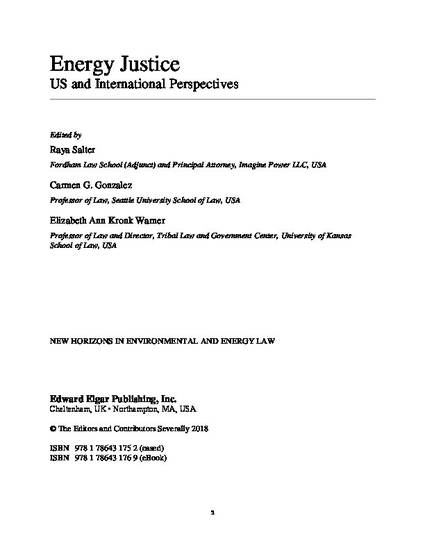
Contribution to Book
An Environmental Justice Critique of Biofuels
Energy Justice: US and International Perspectives
(2018)
Abstract
This chapter examines the global environmental justice and energy justice implications of the laws and policies of the United States and the European Union that promote the production and consumption of biofuels. Replacing fossil fuels with biofuels derived from renewable organic matter has been advocated as a means of mitigating climate change, achieving energy security, and fostering economic development in the countries that cultivate the crops used as biofuel feedstocks. Regrettably, the growing demand for biofuels in the Global North has produced significant harm in the Global South—ravaging local ecosystems, depressing food production, and depriving vulnerable communities of access to the land and water necessary for subsistence. Far from mitigating climate change, many of these biofuels emit more greenhouse gases than the fossil fuels they replace. In addition, the practices used to grow biofuel feedstocks also degrade soil and water quality. The chapter concludes with governance strategies to foster a more equitable and sustainable approach to bioenergy.
Keywords
- Biofuels,
- Renewable Energy,
- Environmental Justice,
- Energy Development,
- Human Rights,
- Energy Justice
Disciplines
Publication Date
November, 2018
Editor
Raya Salter, Carmen G. Gonzalez, and Elizabeth Ann Kronk Warner
Publisher
Edward Elgar Publishing
ISBN
978 1 78643 175 2
Citation Information
Carmen G Gonzalez. "An Environmental Justice Critique of Biofuels" Energy Justice: US and International Perspectives (2018) p. 42 - 72 Available at: http://works.bepress.com/carmen_gonzalez/49/
